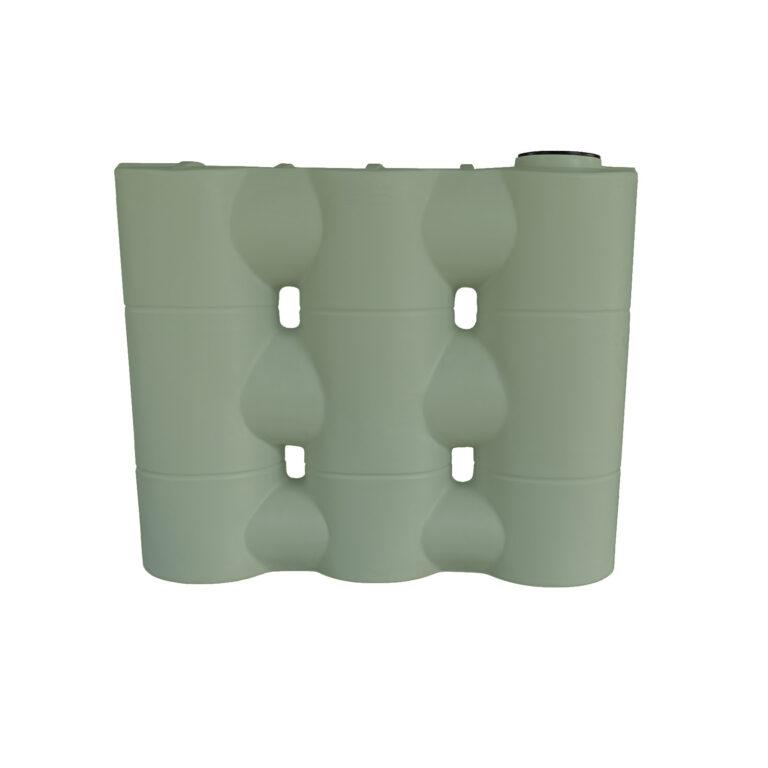Exploring the Numerous Uses of Rainwater Containers for Residential and Commercial Characteristics
As the worldwide focus on lasting living techniques continues to intensify, the application of rainwater storage tanks in both residential and industrial setups has actually arised as an important solution. The multifaceted usages of rain containers present an engaging instance for their adoption, not just as a practical water-saving measure however also as a testimony to liable resource monitoring.
Benefits of Utilizing Rain Storage Tanks
Using rain containers uses numerous advantages for both households and neighborhoods in terms of water conservation and sustainability. Among the key benefits of utilizing rainwater storage tanks is the significant reduction in reliance on mains water system - Slimline water tanks. By recording and saving rain for later usage, people and communities can lower their need for cured water, eventually easing the burden on water treatment centers and decreasing power usage connected with water transportation and therapy
Moreover, rain collecting via tanks provides a reliable alternate water source during times of water restrictions or lacks. This stored rainwater can be made use of for various non-potable functions such as watering, flushing bathrooms, and washing garments, reducing the strain on traditional water sources. Additionally, utilizing rainwater storage tanks can bring about cost savings for both homes and neighborhoods by lowering water bills and reducing the need for expensive infrastructure growths to meet growing water needs.
Essentially, the utilization of rainwater tanks offers a sustainable and eco-friendly approach to water management, benefiting both specific users and the more comprehensive community in regards to water conservation, cost-efficiency, and resilience.
Rain Storage Tank Use in Watering
Offered the advantages of rainwater tanks in preserving water resources and lowering dependence on keys water, a substantial application depends on using saved rain for watering objectives - Slimline water tanks. Rain collecting systems can successfully gather and keep rainwater, providing a sustainable water source for sprinkling yards, grass, and farming fields. By utilizing rainwater for irrigation, building owners can minimize their dependence on cured water resources, leading to cost financial savings and environmental benefits

Among the primary advantages of making use of rain for irrigation is its pureness. Rain is naturally soft and devoid of the chemicals and additives commonly discovered in keys water, making it optimal for nourishing plants without the danger of harmful results. Additionally, rainwater is at ambient temperature level, which can benefit plant development by avoiding temperature shocks that can occur with cold keys water.
Rain Tanks for Commode Flushing

Implementing rain storage tanks for toilet flushing is a cost-effective and eco-friendly method that can be quickly incorporated into both domestic and business buildings. The saved rain can be made use of to flush commodes by connecting the storage tank to the existing plumbing system. This straightforward yet effective remedy can dramatically decrease water consumption in a structure, especially in areas where water deficiency is a concern.

Integrating Rain Storage Tanks in Landscape Design
These storage tanks can capture and save rainwater runoff from roofings, which can after that be used for sprinkling yards, lawns, and plants. By making use of rainwater for irrigation purposes, building owners can lower their reliance on metropolitan water sources, leading to set you back basics savings and preservation of valuable water resources.
Along with providing a lasting water source for landscape design requirements, rain tanks can also help in taking care of stormwater overflow. By capturing rain that would certainly otherwise move into tornado drains, these containers can alleviate erosion, lower flooding threats, and stop air pollution of all-natural water bodies. Integrating rain tanks in landscaping can add to the total aesthetic charm of the home, showcasing a dedication to environmental stewardship.
Business Applications of Rain Containers
Making use of rain storage tanks in commercial settings supplies a lasting service for water management and preservation, profiting services and the environment alike. One key industrial usage is for watering functions, where gathered rainwater can be used to water landscape design, gardens, and agricultural areas bordering industrial homes.
Furthermore, rain storage tanks can be integrated right into the fire suppression systems of business buildings. By having a dedicated water resource for firefighting functions, organizations can improve their fire precaution and potentially lower insurance coverage costs. Furthermore, rain gathered in storage tanks can be treated and linked here made use of for non-potable purposes within business homes, such as flushing commodes, cleansing, and cooling systems. This not just conserves freshwater resources but additionally decreases operating costs for services. Generally, the incorporation of rain storage tanks in commercial settings presents a sensible and environmentally accountable approach to water administration.
Final Thought
Finally, rain containers supply numerous advantages for both residential and business residential properties. From irrigation to toilet flushing and landscaping, using rainwater tanks can help conserve water resources and lower water bills. In addition, integrating rain containers in industrial settings can result in substantial cost savings and environmental benefits. Overall, the versatility and sustainability of rainwater tanks make them a valuable financial investment for any kind of homeowner aiming to boost water effectiveness.